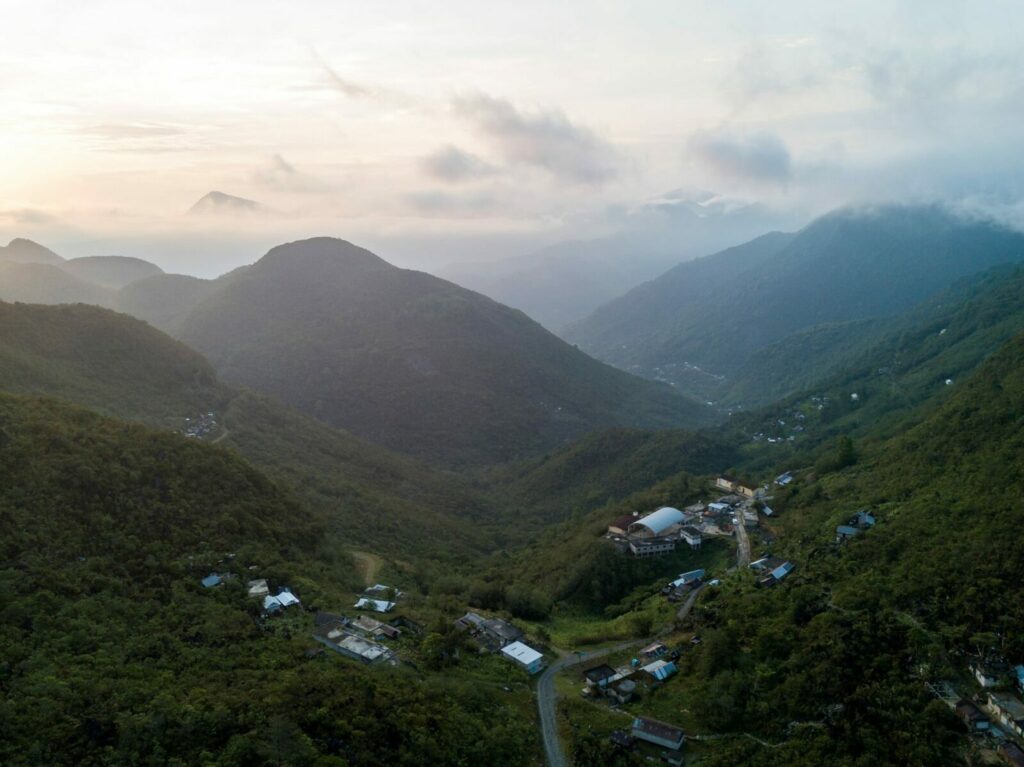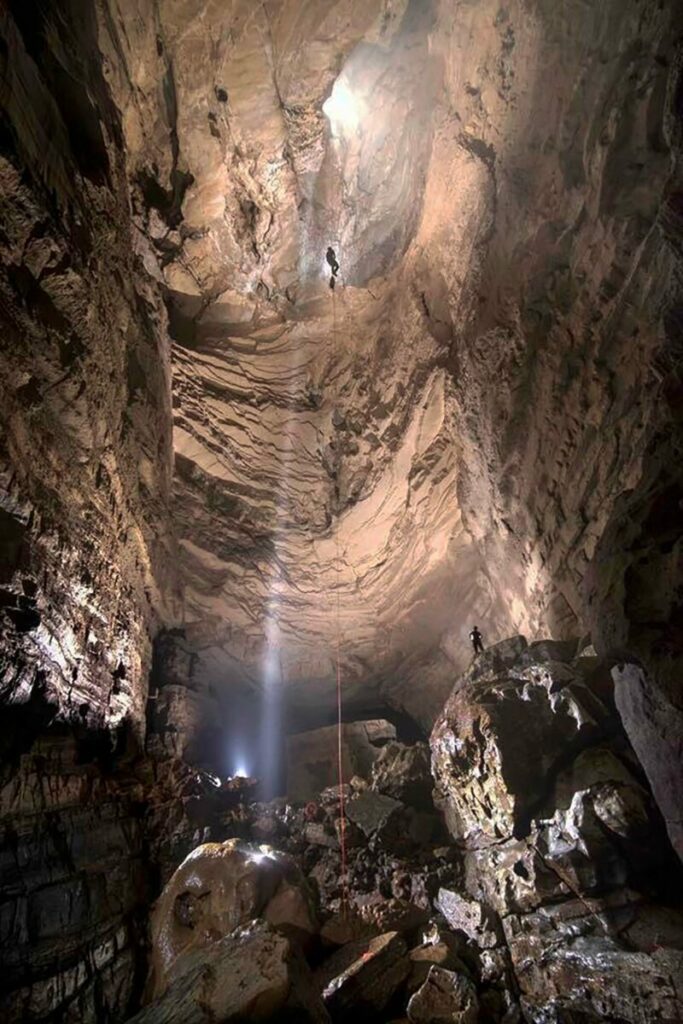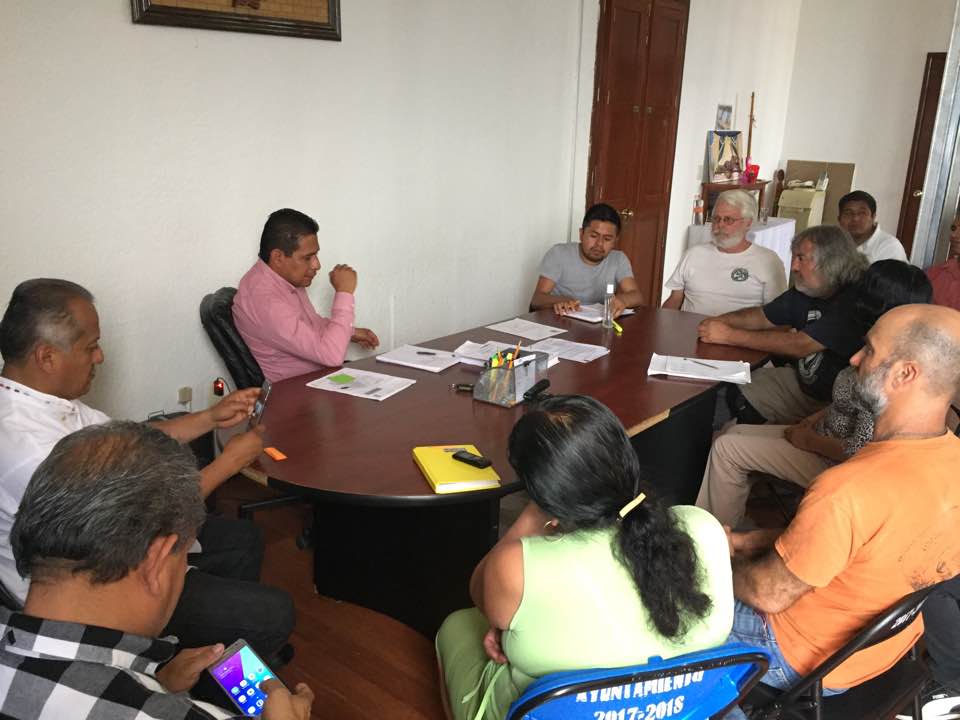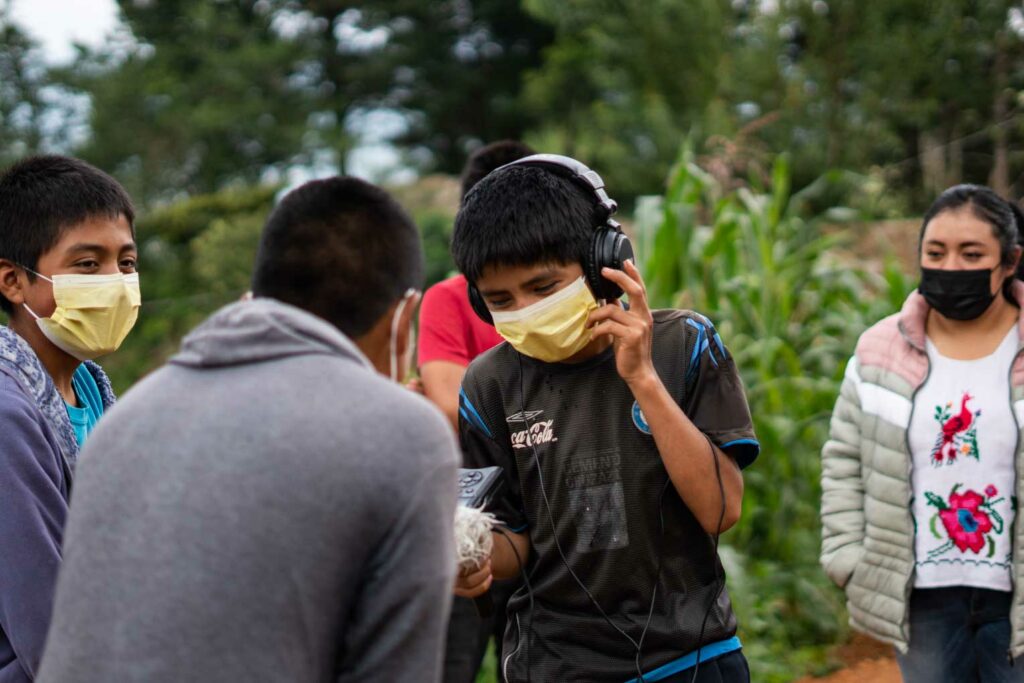Text by Aldo Santiago
During the last Assembly of the National Indigenous Congress (CNI), held in Tehuacán, Puebla, voices from different parts of Mexico warned of the increase in violence directed against the territories of native peoples throughout the country.
In the analysis carried out by the working groups, it was identified that this violence seeks, amongst its objectives, to stop and weaken organizational processes in order to ensure the imposition of megaprojects such as the Interoceanic Corridor and the Mayan Train, among others.
“What we are seeing in our territory is precisely a different kind of violence, but one that also affects us. We hear experiences of other peoples who are subjected to direct violence by the military, who come in and kill them. We have not experienced it (…) in the same way, nevertheless, we have been violated in other ways,” says Jazmín Alvarado, a member of the Movement for the Articulation of the Forgotten Peoples of the Cañada (MAPOC).

Alvarado emphasizes the different forms that violence has taken in communities in the Sierra Mazateca, in the north of Oaxaca. In this region, she identifies situations that seriously damage the community fabric, such as the promotion of cultural tourism that accompanies a process of gentrification in the region, together with the increase in aggressions against women and the rise in femicides.
She also denounces other methods of dispossession, less common and silent, such as those that, through extractivist science, carry out biopiracy actions, such as activities carried out by North American speleologists in the deepest caves of the American continent: the Huautla System.
Despite the encirclement of the communities, Alvarado, who collaborates with autonomous projects, emphasizes the organizational work focused on youth, children and the commitment to incorporate the new generations in processes of community resistance aimed at strengthening the defense of the territories. This publication is part of a series of dialogues with participants of the CNI Assembly. You can consult past installments on the processes in Sonora, the Isthmus of Tehuantepec, Michoacán and Quintana Roo. Below, we share excerpts from the interview with Jazmín Alvarado.
Avispa Mídia (AM): How does the relationship between science, extractivism and dispossession that you have denounced in the Mazatec highlands manifest itself?
Jazmín Alvarado (JA): In our region, in the Mazatec communities, there are many extractivist projects on the part of the scientific community. Science comes to violate our ways of seeing the world and they also pretend to be here to teach us about what they believe to be reality. And not only that, they take away ancestral knowledge without leaving anything behind since they do not share this knowledge with the communities. For example, as part of the Movement for the Articulation of the Forgotten Peoples of the Cañada (MAPOC), one part that we have defended has been our territory, San Agustín Zaragoza, a town that is located 20 minutes from the municipality of Huautla de Jiménez. There are some caves there that are supposed to be among the largest in Latin America and then, they want to penetrate there, with a speleological project called Sistema Huautla.

This speleological project has been entering our territory during the past 50 years. During this time they were never questioned about what their work was, what they were doing (…) and they were never questioned about what they were coming to do or what they were looking for, but the moment came when young people, and in a way that we had also learned about other struggles, well, it unsettled us – not knowing what were foreigners doing while entering our territory. And why they were coming and then we never got any answer from them.
AM: What were the foreigners’ arguments for their expeditions?
JA: They gave different versions. When they arrived they said that they were from NASA (National Aeronautics and Space Administration of the USA) and that they wanted to go and explore the Moon; that is, our grandparents and the people who live there, they know that they delivered that discourse.

Now they have changed it completely. When we began to question them, they said they were just amateurs who were going to play sports and they said they were just going to see what was out there and practice that sport. They speak Spanish perfectly, they even talked and chatted with our relatives when they bumped into them. They spoke Spanish and now when we questioned them, it turns out that they have forgotten it. It is also a way in which they have internalized their colonialism. They see us as people who may be ignorant, who are not capable of reading, for example, an article that they published in English, thus, we also feel violated from that vision that they have of us. That they believe that we are not capable of having access to science, that we do not deserve having access to knowledge about what they are doing in our own territory, and so we feel infringed as well.
AM: You have investigated the work carried out by these cavers, what have been your findings?
JA: We have found that they have been doing various activities there. Inside (the caves) they have been testing robots, they have been testing materials, such as diving suits for the U.S. Army. They’ve been doing various things without having any permits. If the government really cared about the situation of our peoples, if it was interested in our peoples, this would even be a national security issue. Because then, what are these people doing there, why do they have the right to go in there to test instruments, to test whatever they are putting in there, in our waters. Why can they put those things in there, if they don’t have any authorization?
Neither do they have them at the state level. We have investigated this and these people do not have any permit to be there, much less from the authorities of our community. They were consulted even less; until we stopped them and until a report was issued stating that they no longer had permission to access the caves. And yet they still did it.
Yes, they continue to make these approaches, wanting to enter, because there is this entrance to the cave system in our territory, where they want to force their way in. They are looking for other alternatives, in other towns. We have found out that they have bought land to be able to enter these caves and get another entrance that will allow them to continue with their plans and yet, with all this, they still do not tell us, do not give us a real explanation, of what they are doing and instead they lie to us that they found, according to what they say, remains of animals that are unique in the region, without showing them. When we found out that they had discovered the remains of a sloth, it turned out that it was already in the hands of the National Institute of Anthropology and History (INAH), and that never went through us, they never informed us, they never informed the Assembly of our community. They took those remains assuming that the INAH could take it and that it was the corresponding instance and they bypassed our authority, our assembly.
AM: During the work of the Assembly you have mentioned other ways of scientific extractivism, can you share more with us?
JA: As far as science is concerned, it is the one that has been the most involved in this, they are also trying to carry out studies on hallucinogenic mushrooms. What they intend to do is the extraction of psilocybin, to start legalizing the use of psilocybin to be used in medicine. According to this, psilocybin treats depression, but for us, it is not the mushroom itself that is important, but the ritual, everything that the ceremony implies, that involves healing.
We feel that it is a lack of respect towards what we believe in, towards our way of seeing things; it is lack of respect to carry out these investigations or taking something out from our land in order to be commercialized. And we know that in the long term this is also going to have consequences, because we know that synthetic drugs bring with them addictions. We see it, even taking the mushrooms, sometimes it can be harmful if one does not perform the ceremony as such and we see it now, What is going to happen with those people who start consuming it without even going through a healing process? Because it is not just taking the mushroom and with that you are cured, but it is, we would say, during the ceremony and during the following days, when you get that healing. It is a whole process and they are reducing it to a simple medicine.
That is what we see how they are violating us, commercializing something that our ancestors used to cure themselves, but to cure themselves in a different way, not from that western vision where the only thing is to see if you have depression. And when we do all this, we work on the emotions, we work on everything that you have lived as a person. Therefore, that is something that worries us, all the consequences that the commercialization of these medicines or the intentions that they have can bring. And well, that even now is being reflected in the fact that the mushrooms are no longer appearing. There are very few of them, they no longer grow in the places where they used to grow and it is worrying.
The people in our towns, in our communities, heal themselves in this way. Tourism arrives and starts to take mushrooms without even being aware of all that it implies. Well, we could say that supply and demand is generated, then they arrive and start consuming, but it is not a responsible consumption, it is not a consumption that is done, just as I mentioned, that it should be done consciously and through a whole process of ceremony.
We have also been affected by tourism, which arrives here and we begin to see the gentrification of our municipality, housing and food costs are beginning to rise, hotels are being built to continue attracting tourism and this is something that worries us a lot because the people who live there are beginning to see their lives affected by the high costs.
AM: Another of the denunciations you have made refers to the aggressions against women, what is the context of this violence in the Mazateca region?
JA: There is also the increase of femicides and the fact that they have gone unpunished, that is to say, the government of our municipality has ignored all of this. There is not, it cannot be seen that there is really justice for the victims. Unless it is made visible, unless a lot of noise is made, unless the people themselves begin to demand justice, begin to mobilize, until that moment they (goverment/police) start to move. But if they are not shown that they are not doing anything, then they do not move a finger, and so one, two, three women can be killed and nothing is going to happen. We also see that it is even classist, it gets to that point, because if you are a woman from a community then they don’t pay attention to you. When you are from the municipality or live in the center, there are more opportunities for people to ask for justice for you or for your murder as a woman, and when this happens in the communities, these deaths are forgotten.
This is also something that affects us directly, because we, as women, cannot have the security or the guarantee that we will obtain justice if at some point something happens to us. The only thing we hold on to are our collective processes. These are the places or spaces to where we belong, where we feel that we will not be forgotten and where they will not allow injustice to be done to us. Well, it is very sad to know that, on the part of the government, we have no guarantee that justice will be done to us. So, at times it has been up to us, as women, to see ourselves in that place, to see ourselves in the place of “What would happen if one day I disappear or if one day I die, who is going to ask for justice for me? It is up to us to see ourselves in that, to do those exercises of reflection so that we can also stand in solidarity with the women who are from our communities, to continue asking for justice for them.
AM: What has been your experience of participating in this CNI assembly?
JA: I feel that these spaces allow us to see what is happening in other places, not to say ‘it is happening to me less than in another place’, but to reflect on how they already have this experience, how they are going through these moments, how they are doing, how they are organizing themselves in their communities to face all that is happening?
I feel that it is very important for us to be listening to the experiences of the different peoples, because this is also how we nurture our own process. We are learning from all these organizational processes and, above all, we are seeing how we are organizing ourselves, what can we do to continue articulating ourselves? Perhaps we may have points in common. We are listening to what is being said; organized crime is a common issue here, so we have to see: How can we confront this situation?
What mechanisms are left for us? I believe that this is something, rather an exercise, that cannot be solved from one day to the next, but that we have to continue reflecting, to see what we can do in the face of this situation.

On our part, we insist on the importance of creating this space within the CNI, so that it can also be for the youth and for the children. For us it is very important that this space can be allowed here within these meetings, so that they can also learn, listen and see how we organize ourselves because, at the end of the day, the ones who are defending their peoples are also getting older, so now we have to think about who are going to inherit all that struggle.
I feel that this is something that we should be thinking about, how to bring children and young people closer to the CNI. If we keep focusing only on ourselves, on adults, on the elderly, I feel we are going to be left with less and less, and what matters here is how we are going to grow.
Original text: Avispa Midia https://avispa.org/ciencia-extractivismo-y-despojo-en-la-sierra-mazateca/
